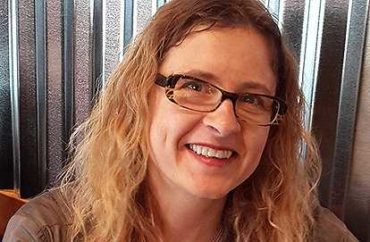
The point of a scientific publisher is not to promote ideology
“The politicization of science—the infusion of ideology into the scientific enterprise—threatens the ability of science to serve humanity,” chemistry professor Anna Krylov and statistician Jay Tanzman wrote in a paper published Monday to Heterodox STEM.
“Today, the greatest such threat comes from a set of ideological viewpoints collectively referred to as Critical Social Justice,” Krylov (pictured) and Tanzman continued.
The paper was originally presented at the symposium Perils for Science in Democracies and Authoritarian Countries at the Ben Gurion University of the Negev in Beer Sheva, Israel in January of this year.
The ideology of “critical social justice” is rooted in “Marxism and postmodernism,” they wrote.
“It fundamentally conflicts with the liberal Enlightenment,” which include “ideas that have made the world healthier, wealthier, better educated, and in many ways more tolerant and less violent that it has ever been,” they continued.
The point or telos of a scientific publisher is to enable the communication of good scientific research, Krylov and Tanzman wrote.
Recently, publishers have allowed Diversity, Equity and Inclusion considerations to undermine that telos.
Examples of DEI threatening the scientific enterprise include “gender/racial quotas on editors, authors, and reviewers, and ‘citation justice’-the requirement that papers preferentially cite authors belonging to favored identity groups or living in developing countries,” they wrote.
Papers are routinely censored for “offensive” content, and “at least one chemistry publisher has issued censorship guidelines tot he editorial boards of its journals to prevent the publication of ‘offensive’ content,” they wrote.
“The ever-expanding scope of what is considered ‘offensive’ ranges from fundamental biological facts, such as the sexual dimorphism of humans, to everyday English words and phrases, e.g., ‘dark times,’ ‘webmaster,’ ‘nursing mother,’ and ‘the poor’ (ACS Guide 2023).”
The Royal Society of Chemistry put out new guidelines, they wrote, which require scientists to “consider whether or not any content (words, depictions or imagery) might have the potential to cause offence…..”
“[T]he aim of this guidance is to help you to identify and prevent the publication of inappropriate content in our journals and books, and to encourage you to reflect on how inappropriate content can impact members of the community and readers around the world.” according to the document.
Their criterion for offensive content, the authors wrote, is “so vague and broad that it could be used to censor just about anything in chemistry and beyond.”
Critical Social Justice, the authors concluded, “is a threat to scientific progress and, hence, to human welfare.”
“By handicapping the ability of science to provide solutions to important problems, CSJ hurts everyone,” they wrote.
MORE: Critical race theorists attack motives, not arguments
PHOTO CREDIT: University of Southern California
Like The College Fix on Facebook / Follow us on Twitter






Please join the conversation about our stories on Facebook, Twitter, Instagram, Reddit, MeWe, Rumble, Gab, Minds and Gettr.